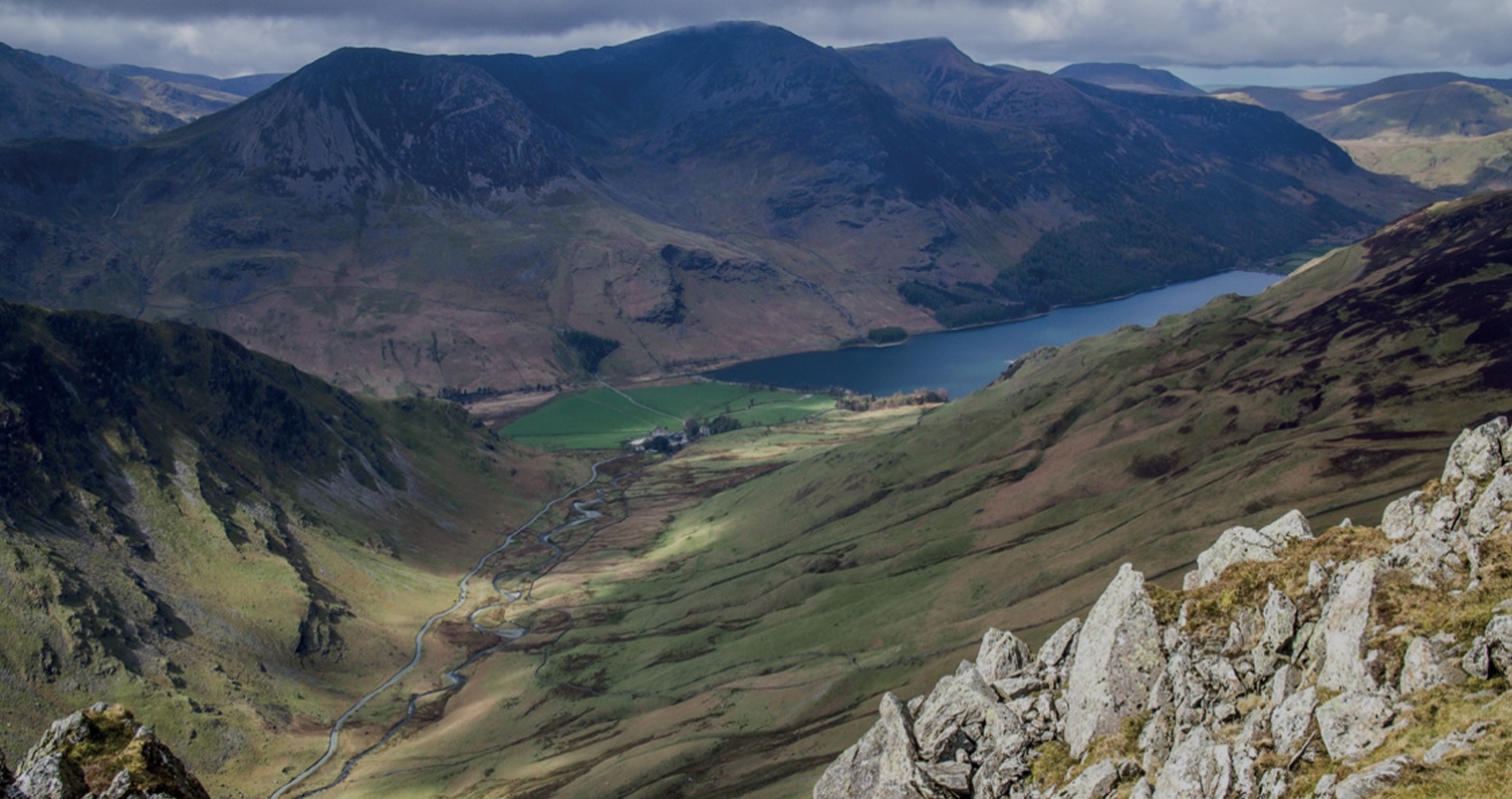
Nestling serenely in the north-west corner of the Lake District, Buttermere’s classic U-shaped glacial valley contains not one but three lakes – Buttermere, Crummock Water and Loweswater. Buttermere runs out from the central fells, through the meandering Derwent Valley on towards the mouth of the lovely Solway Firth, creating a scene that Alfred Wainwright described in his ‘Pictorial Guides to the Lakeland Fells’ as a place where “loneliness, solitude and silence prevail that make the scene unforgettable”.
Neolithic or Bronze Age settlement in the valley can be traced through the rock art at Mill Beck, Buttermere and Crummock Water. There are also a number of prehistoric summit cairns, including those at Carling Knott and Grasmoor, and it is thought that an Iron Age hillfort stood at Loweswater. Early medieval and Norse settlement is reflected in words such as ‘thwaite’ (clearing), ‘scale’ (summer farm) and ‘kirk’ (church) in local place names.
Sheep farming, as it has been for centuries, is the principal occupation in Buttermere and it is an important grazing place for the hardy Herdwick breed. Other industries here included some limited mining, thanks to the discovery of haematite in the west side of the valley and some iron production in medieval times. The remains of 14 iron smelting furnace sites, or bloomeries, can be found around Crummock Water, Loweswater and east of Buttermere. But it is the results of the mining of Lakeland slate that dominate the landscape at the head of the valley at Honister Hause.
In their 1799 walking tour, both Wordsworth and Coleridge visited Buttermere. In his ‘Notebook’, Coleridge wrote lyrically of a striking yew tree. This was the same tree later celebrated by Wordsworth in his poem ‘Yew Trees’. Although damaged and reduced by a storm, the yew tree still stands today on the bank of the Whit Beck, behind the village hall. JMW Turner’s visit to the valley was transformative for him as an artist and his spectacular ‘Buttermere Lake, with Part of Cromackwater, Cumberland, a Shower’ was shown in an exhibition at the Royal Academy. Broadcaster Melvyn Bragg wrote an account of the true story of Mary Robinson in his popular novel ‘The Maid of Buttermere’. Mary was the daughter of the landlord of the Fish Inn, a hostelry that still welcomes visitors in the valley today.
The story of conservation around Buttermere is a fascinating one. In 1814, with the encouragement and involvement of Wordsworth, John Marshall, the Leeds industrialist, bought extensive landholdings around the lakes of Buttermere, Crummock Water and Loweswater, with the aim of maintaining the beauty of the area. Large parts of the valley have subsequently been purchased by the National Trust and the whole of the valley head of Buttermere is covered by a restrictive covenant agreed with G. M. Trevelyan in 1937. Canon Rawnsley also managed to lead a successful protest to prevent the building of a railway from Keswick to Buttermere to serve the Honister slate quarry. Together, these conservation activities have led to the preservation of a strikingly beautiful and pastoral valley.